Argentine 'tornado' Macri woos Obama
- Published
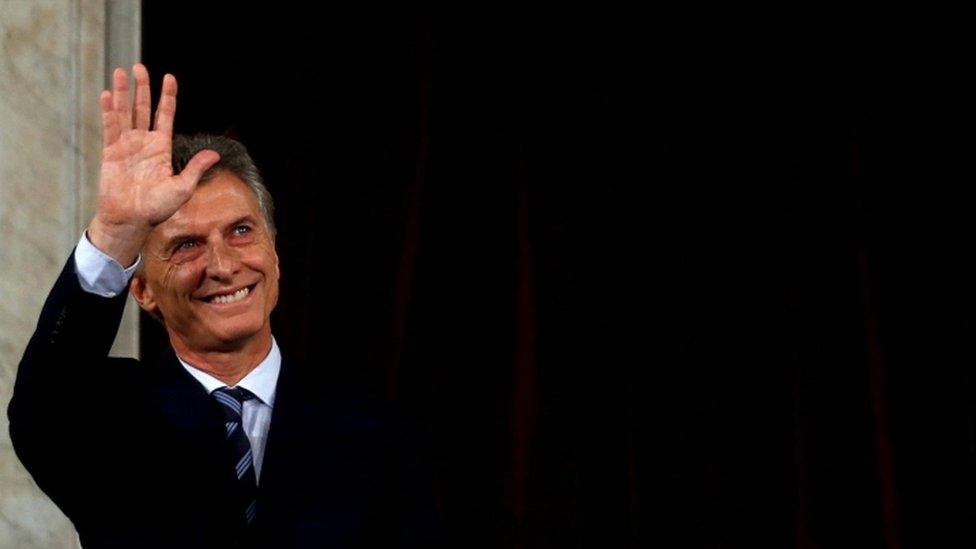
Mauricio Macri has made a busy start to his term
"There are winds of change in Argentina."
So claims Mauricio Macri, the centre-right politician who became president of Latin America's third largest economy in December.
The US-educated businessman has made it a priority to mend relations with foreign powers and investors after 10 years of combative rhetoric under his leftist predecessors, Nestor Kirchner and his wife (and later, widow) Cristina Fernandez de Kirchner.
Soon after his swearing-in ceremony, Italian Prime Minister Matteo Renzi , externaland French President Francois Hollande, external travelled to Buenos Aires to expand co-operation.
But President Barack Obama's visit this week to Argentina, just over 100 days into Mr Macri's term, is the most significant.
It is the first visit to the South American country by a US president since 2005.
The trip underlines Mr Macri's determination to re-insert Argentina into the global economy, and his desire to build a mutually beneficial relationship with the US.
Mr Obama also wants to fulfil his longstanding promise to open a new chapter of engagement between Washington and Latin America, one that acknowledges progress made by the region's democracies.
In Buenos Aires, Mr Obama and Mr Macri are expected to increase co-operation in areas such as trade and investment, renewable energy and climate change, and citizen security.
The Kirchners' decade
But, what has changed so rapidly in Argentina to make the country a destination for world leaders?
During Nestor Kirchner and Cristina Fernandez de Kirchner's decade in power, Argentina became politically and financially isolated.
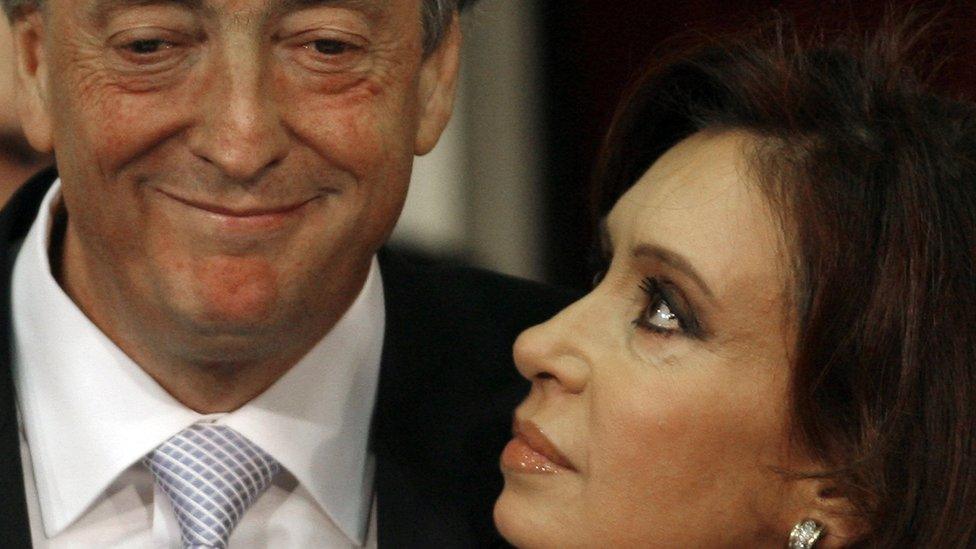
Nestor Kirchner and Cristina Fernandez de Kirchner were both outspoken
The Peronist couple had a belligerent relationship with Washington, whom they accused of "imperialism".
And following Argentina's massive debt default in 2001, they turned their backs on the International Monetary Fund, which they said had been a "destructive" influence on the nation's economy.
They imposed strict capital and currency controls, claiming this would stop multinationals and financial speculators from draining the country of cash, and prevent a devaluation of the Argentine peso against the dollar.
The Kirchners also fought a fierce battle against what they called "vulture funds", foreign investors holding $9bn (£6.25bn) in bonds on which the country defaulted.
These bonds were bought by hedge funds NML and Aurelius Capital Management for a fraction of their face value in the aftermath of Argentina's economic collapse in 2001.
The lengthy dispute - which led Argentina to a second default in 2014 - has restricted the country's access to international credit markets.
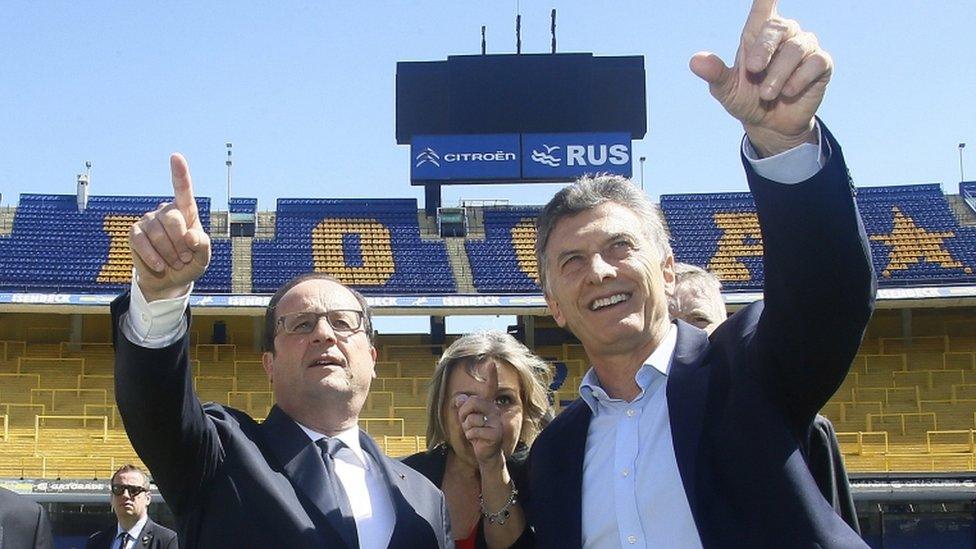
President Hollande is among the world leaders to meet Mr Macri
However, for millions of Argentines the Kirchners' decade - which was also very strong on social policies - restored the nation's pride.
The economy grew at an 8% rate in the first years.
But then it started to slow down because of its excessive reliance on the domestic market, the lack of foreign investment and credit, and declining global demand and prices of agricultural products, Argentina's main export.
As a consequence, the country was forced to seek investment from far-away nations such as China and Russia.
Fundamental changes
In his first months as president, pro-business Mr Macri has tried to overturn almost every one of his predecessors' key policies.
One of his first moves was to resume contact with the US and other global powers "to restore the important role Argentina should have in Latin America and the world".
He lifted capital and currency restrictions, and started talks with big international banks to get loans.
Mr Macri's government also began negotiations with the bondholders, offering to pay 75% of their outstanding claims, external. Some have already accepted.
However, many Argentines think the president's "winds of change" have looked more like a destructive tornado so far, as a number of controversial measures have deeply affected their everyday lives.
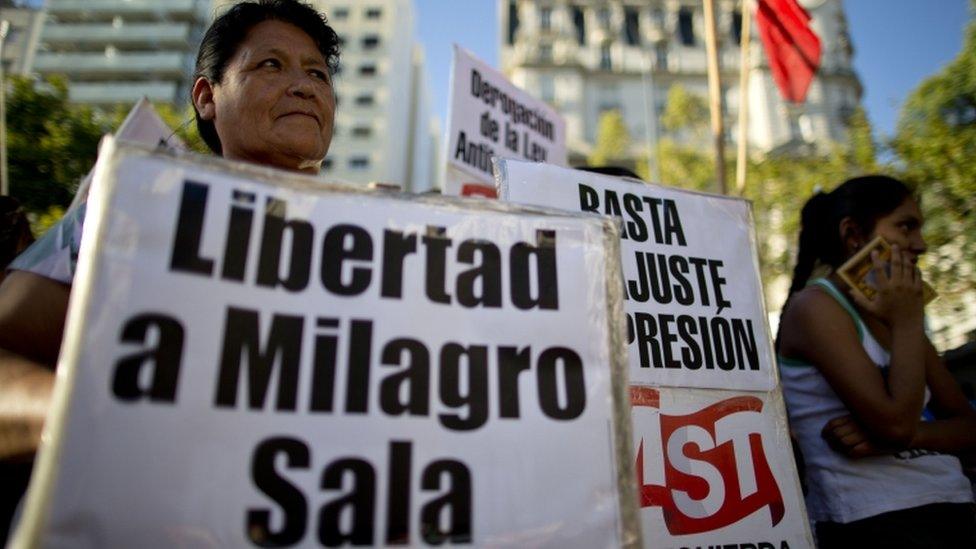
Protesters are furious at the detention of Milagro Sala
In January, the government stopped subsidising utility bills, external, and electricity prices went up by almost 300%.
And the peso lost about 30% of its value against the dollar in one single day after he decided to lift restrictions on the currency market.
All these decisions have pushed prices up and fuelled fears of hyperinflation.
Mr Macri's administration has also started to cut public spending - which doubled under the Kirchners' administration - by cutting thousands of jobs in government offices.
The opposition has accused the president of carrying out a "political cleansing" by removing civil servants hired by the previous government, and of fuelling unemployment.
In addition, Mr Macri has bypassed Congress, introducing many of these changes by issuing decrees, which critics have described as an "authoritarian" move.
The detention of high-profile social leader Milagro Sala on corruption charges in northern Argentina also proved to be controversial. Ms Salas had very close links with the previous administration.

Milagro Sala:
Founder and leader of the Tupac Amaru neighbourhood association
She established the organisation in 2001 when the Argentine economy was in desperate trouble, and many of the poor were struggling for food. Its powerbase is the northern Jujuy province
Tupac Amaru channelled government funding to food and housing for the poor, and built schools, clinics and factories
However, opponents accused Sala of monopolising control over state resources, and abusing her position for political gain
She was was detained in January as she protested about reforms to social spending being implemented by Jujuy's provincial government
She is accused of siphoning off funds for social housing that were distributed through her organisation

Mr Macri's ascent to power after a comfortable win in last year's election might have been good news for international markets and creditors, as well as the US and other global powers.
But political and social discontent could become an obstacle to his aim of boosting Argentina's standing in the world.
- Published23 November 2015
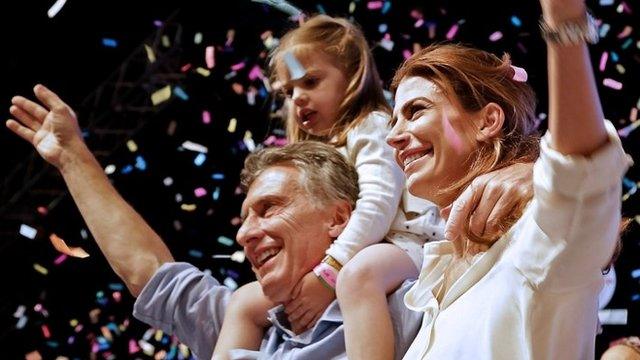
- Published10 December 2015
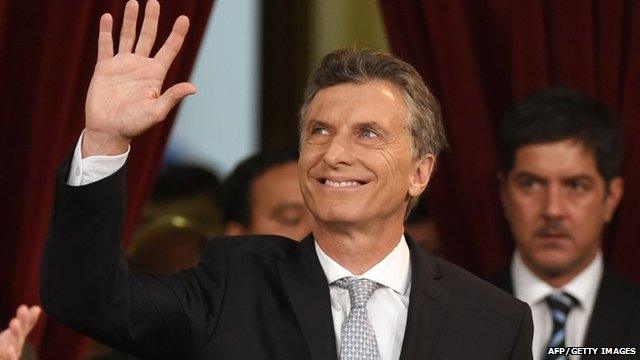
- Published5 November 2019